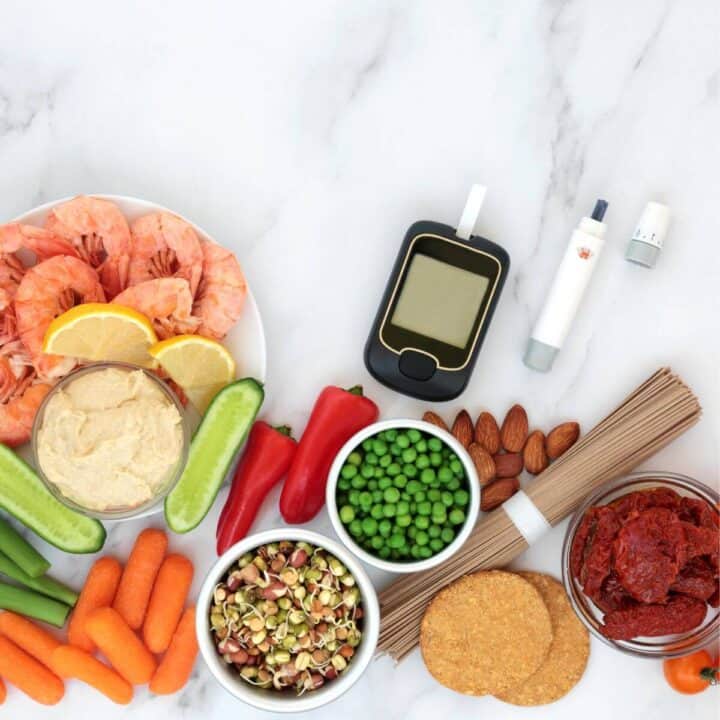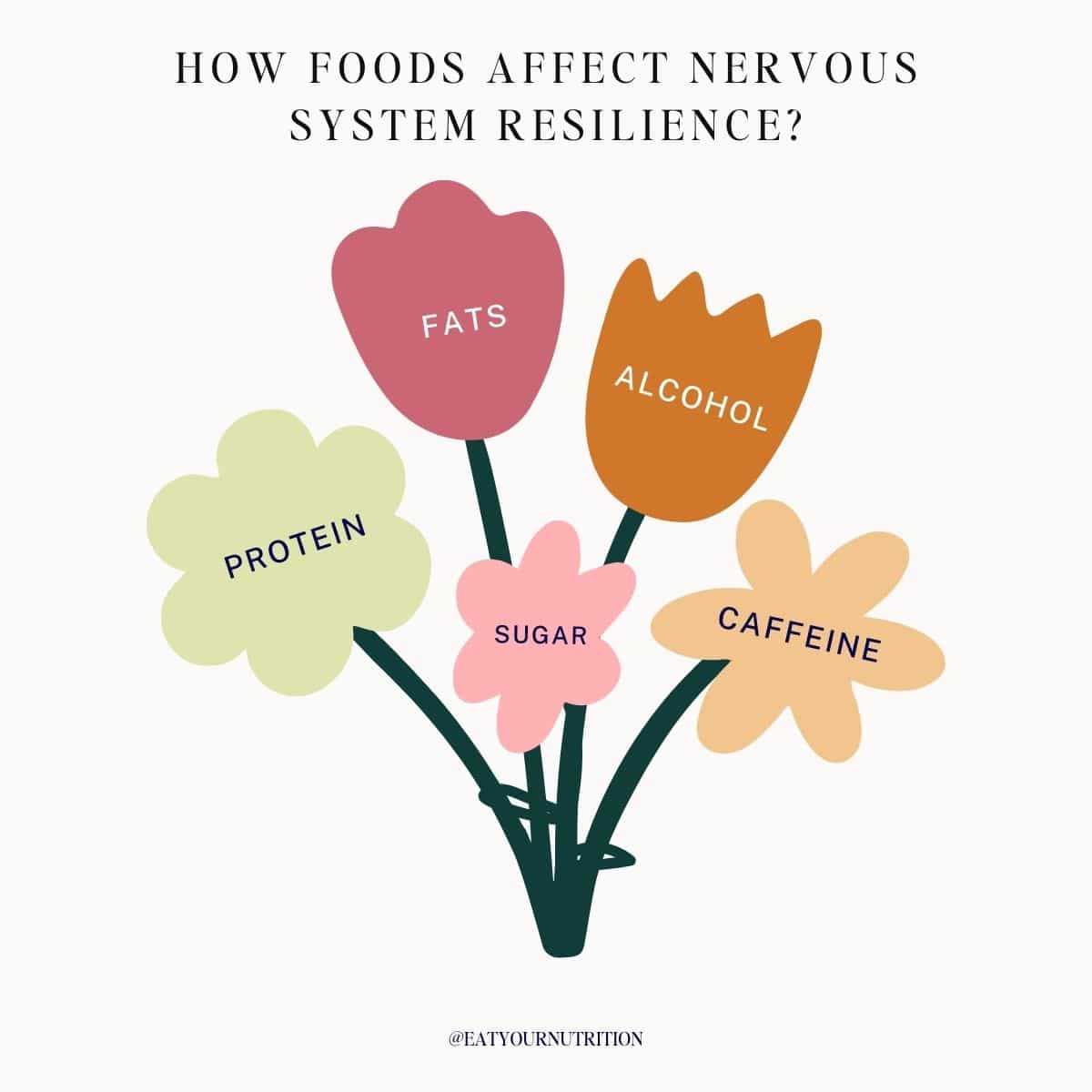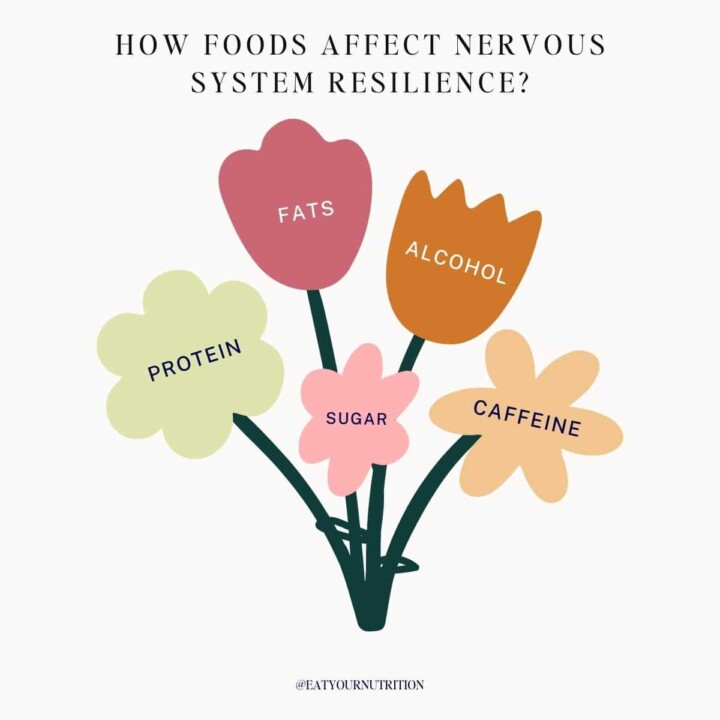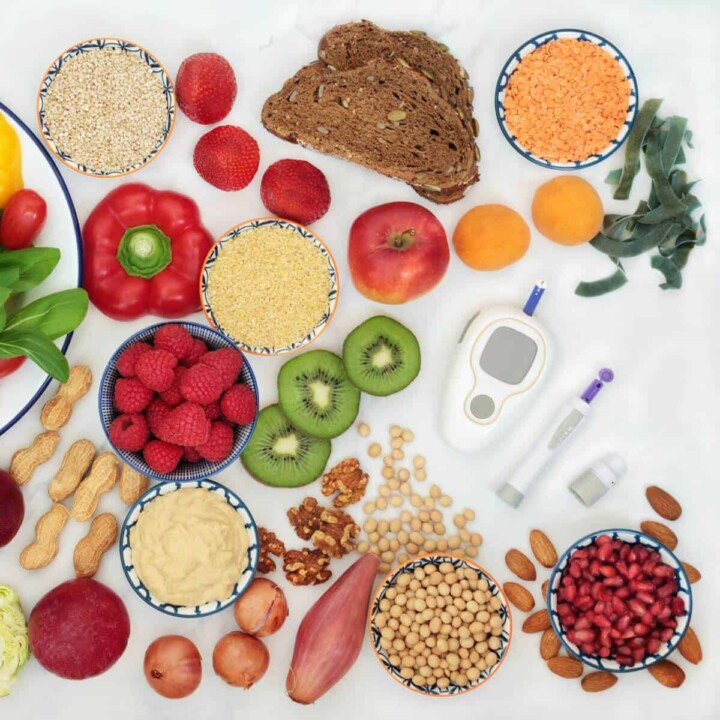In this article, we'll explore fascinating dynamics between stress, cortisol, and blood sugar glucose levels. Stress, anxiety, cortisol, all have effects on our blood sugar and glucose levels. How can we manage blood sugar, and does stress raise it? Let's discuss blood sugar and stress further.

Table of Contents
🍭 Blood Sugar And Stress
Taking a look at how they influence and affect each other, and, more importantly, how we can effectively manage this relationship to promote optimal health. So how does stress really raise our blood sugar?
Anxiety can definitely have an impact on our blood sugar levels. So it's key to discover ways to reduce those cortisol levels before they become raised, and impact our blood sugar.
We've all felt it before, anxiety strikes. You know, that feeling you get when you spill your coffee, stuck in traffic, are late for work, and when you finally arrive, you've got more work on your list than expected.
Experiences like these typically only lead to one feeling - stress!
It's that familiar knot in your stomach, the racing thoughts, and the overwhelming sense of pressure that seems to weigh you down.
But beyond the immediate emotional and psychological effects, there's something else happening beneath the surface. Your body's intricate response to stress, which can have significant implications for your blood sugar levels.
From uncovering the mechanisms behind stress-induced changes in blood sugar to unveiling practical strategies for mitigating their effects, we aim to empower you with the knowledge and tools necessary to navigate this intricate terrain with confidence. So, how does stress raise our blood sugar levels? It's a vicious cycle, so let's explore this further.
😩 Stress and Blood Sugar: The Vicious Cycle
When stress strikes, our bodies kick into high gear, initiating a cascade of physiological responses designed to help us cope with perceived threats or challenges. At the forefront of this response are two key stress hormones: cortisol and adrenaline.
These hormones, often referred to as the body's "fight or flight" messengers, mobilize resources to fuel our immediate response to stress.
Cortisol and Blood Sugar
Cortisol, in particular, plays a central role in regulating blood sugar levels by promoting gluconeogenesis, the process by which the liver produces glucose from non-carbohydrate sources like amino acids and fats, and glycogenolysis, the breakdown of stored glycogen into glucose for energy.
As a result, when stress hormones surge, so can our blood sugar levels, providing us with the energy needed to tackle the perceived threat head-on. While this response can be beneficial in the short term, chronic or persistent stress can disrupt the delicate balance of blood sugar regulation, leading to long-term consequences for our health.
One such consequence is the development of insulin resistance, a condition in which cells become less responsive to the effects of insulin, the hormone responsible for transporting glucose from the bloodstream into cells for energy. Over time, insulin resistance can lead to elevated blood sugar levels, increasing the risk of type 2 diabetes and other metabolic disorders.

😥 Impact of Blood Sugar Levels on Stress Response
While we often focus on how stress influences blood sugar levels, it's essential to recognize that the relationship works both ways. Fluctuations in blood sugar levels can profoundly impact our mood and stress response, creating a feedback loop that further exacerbates our physiological and psychological reactions to stress.
One critical aspect to consider is hypoglycemia, a condition characterized by low blood sugar levels. When blood sugar levels drop too low, it can lead to a range of symptoms, including irritability, anxiety, confusion, and even palpitations.
These symptoms are a direct result of the brain's reliance on glucose as its primary energy source. When glucose levels fall below a certain threshold, the brain struggles to function optimally, manifesting in emotional and cognitive disturbances.
Furthermore, unstable blood sugar levels, characterized by frequent fluctuations between high and low levels, can contribute to heightened stress reactivity.
Research suggests individuals with unstable blood sugar levels may experience greater emotional volatility on anxiety and have a reduced ability to cope effectively with stressors. This phenomenon can be attributed to the body's reliance on stable blood sugar levels to maintain optimal brain function and regulate mood.
In essence, the impact of blood sugar levels on the stress response is a two-way street. Just as stress can disrupt blood sugar regulation, fluctuations in blood sugar levels can intensify our physiological and psychological responses to stress.
🩺 Strategies for Managing Stress and Blood Sugar Levels
Managing stress effects and maintaining stable blood sugar levels are essential components of overall health and well-being. Fortunately, there are many practical strategies that you can incorporate into your daily routines to achieve balance and resilience in the face of life's challenges.
Prioritize Stress Reduction Techniques
This can have a significant impact on both stress levels, cortisol, glucose, and blood sugar regulation. Mindfulness practices, such as meditation, deep breathing exercises, and progressive muscle relaxation, can help calm the mind and promote relaxation, thereby reducing the body's stress response.
Additionally, regular physical activity has been shown to be an effective way to combat stress, as it releases endorphins and promotes a sense of well-being. Aim for at least 30 minutes of moderate-intensity exercise most days of the week to reap the benefits for both your mind and body.
Finally, don't underestimate the power of adequate sleep in managing stress and blood sugar levels. Aim for seven to nine hours of quality sleep each night to support optimal physical and mental functioning.
Maintain a Balanced Diet
A balanced diet, alongside paying attention to meal timing, can play a crucial role in regulating cortisol and blood sugar glucose levels. Focus on incorporating various nutrient-dense foods into your diet, including whole grains, lean proteins, healthy fats, fruits, and vegetables.
Avoid skipping meals, as this can lead to dips in blood sugar levels and exacerbate feelings of stress and irritability. Instead, aim for regular, balanced meals and snacks throughout the day to keep blood sugar levels stable and energy levels steady.
Carve Out Time For Activities That Bring You Joy and Relaxation
Whether it's spending time with loved ones, pursuing hobbies, or simply taking a leisurely walk outdoors, engaging in activities that nourish your soul can help counteract the effects of stress and promote overall well-being.
Remember that self-care is not selfish but essential for maintaining resilience and vitality in the face of life's challenges.
⚖️ Role of Social Support in Stress and Blood Sugar Management
Social support networks play a pivotal role in both stress management, cortisol, and blood sugar control, serving as a cornerstone of overall well-being. Numerous studies have highlighted the beneficial effects of social connections on reducing stress levels and improving blood sugar regulation.
Does Stress Raise Blood Sugar Levels?
When individuals feel supported and connected to others, they are better equipped to cope with life's challenges and navigate stressful situations effectively. This emotional support can help buffer against the negative effects of stress hormones on blood sugar levels, promoting greater stability and balance.
So, does stress actually raise blood sugar levels? Conversely, feelings of loneliness and social isolation have been associated with increased stress levels, cortisol, and poor blood sugar glucose management.
Without a strong support system, individuals may struggle to cope with stressors, leading to dysregulation of blood sugar levels and increased risk of metabolic disorders.
One fascinating study conducted in Japan shed light on the profound impact of emotions on blood sugar regulation. Participants who watched a funny movie before eating showed a better insulin response compared to the control group.
This finding suggests that the emotional state in which we consume food can significantly influence our body's physiological response to glucose. It highlights the importance of managing stress and cultivating positive emotions, especially during meal times.
📥 GET THIS RECIPE IN YOUR INBOX 📥

🫶 Stress Reduction Techniques That Support Healthy Relationships
So how can we build and nurture supportive relationships to improve overall well-being and reduce stress? Here are some suggestions.
Prioritize Quality Time With Friends and Loved Ones
Make an effort to maintain regular contact with supportive individuals in your life, whether through phone calls, video chats, or in-person interactions.
Join Community Groups or Clubs
Engaging in activities with like-minded individuals can help foster connections and provide a sense of belonging, reducing feelings of loneliness and isolation.
Practice Active Listening and Empathy
Show genuine interest in others' experiences and offer support and understanding when needed. A listening ear can make a world of difference in someone's life.
Seek Professional Support If Needed
If you're struggling with feelings of loneliness or isolation, don't hesitate to reach out to a therapist or counselor for support and guidance.
😬 Blood Sugar and Anxiety Connection
In this article, we've explored the intricate relationship between stress and blood sugar glucose levels, uncovering the ways in which they influence each other and impact our overall health and well-being. Anxiety can impact blood sugar levels, so this is critical to reduce daily stressors.
We've learned that stress can lead to fluctuations in blood sugar levels through the release of hormones like cortisol and adrenaline, while unstable blood sugar levels can, in turn, heighten our stress reactivity.
Furthermore, we've discussed the vital role of social support networks in managing stress and promoting stable blood sugar levels, emphasizing the profound impact of emotions on physiological responses to glucose.
It's clear that recognizing the interconnectedness of stress and blood sugar regulation is essential for achieving optimal health. By understanding how these factors influence each other, we can take proactive steps to manage stress effectively and support stable blood sugar levels.

😳 Connection Between Nutrition and Nervous System Regulation
A dysregulated nervous system can make it hard to heal your gut, hormones, metabolism, or just about any chronic condition. While practices like breathwork, movement, and meditation are essential for nervous system balance, nutrition plays a crucial role in supporting regulation and resilience.
The Gut-Brain Connection and Nervous System Regulation
Your gut and brain are in constant communication through the gut-brain axis, a bidirectional network that influences mood, stress response, and overall nervous system function. The vagus nerve, a key part of the parasympathetic nervous system, helps regulate this connection.
How Nutrition Impacts This Connection?
- Amino acids from protein help synthesize neurotransmitters like serotonin (which regulates mood) and dopamine (which influences motivation and focus).
- Prebiotic and probiotic foods (fermented foods, fiber-rich vegetables) support gut microbiome balance, which directly affects neurotransmitter production.
- Omega-3 fatty acids (found in salmon, walnuts, flaxseeds) reduce inflammation and improve nerve function, supporting a calm, resilient nervous system.
🍬 Blood Sugar Stability for a Balanced Nervous System
Blood sugar fluctuations can put your nervous system into overdrive, leading to increased cortisol and stress response activation. Keeping blood sugar stable helps prevent mood swings, energy crashes, and nervous system dysregulation.
How to Support Blood Sugar Balance?
- Prioritize protein at meals to slow glucose absorption and prevent energy crashes.
- Incorporate healthy fats like avocado, nuts, and olive oil to support nerve function and hormone balance.
- Limit refined sugar and opt for complex carbs like quinoa, sweet potatoes, and whole grains to maintain steady blood sugar levels.
☕️ Role of Caffeine and Alcohol in Nervous System Regulation
Both caffeine and alcohol can have short-term calming or stimulating effects, but over time, they increase nervous system dysregulation.
Caffeine Considerations
- Activates the sympathetic nervous system, making it harder for the body to relax.
- Can disrupt sleep if consumed too late, leading to increased stress hormone levels.
- Swap out excess coffee for adaptogenic teas (like ashwagandha or tulsi) to support stress resilience.
Alcohol's Impact
- While initially relaxing, alcohol increases cortisol production and disrupts REM sleep, making it harder to recover from stress.
- Instead of using alcohol for relaxation, try magnesium-rich foods (pumpkin seeds, spinach, almonds) to promote natural nervous system relaxation.
✨ Pro Nutrition Tip
To support nervous system balance, focus on protein-rich meals to stabilize blood sugar, include omega-3-rich fats like salmon or flaxseeds for nerve health, and swap out that second cup of coffee for calming herbal teas like chamomile or lemon balm. 🌿
📈 The Bottom Line
We cannot expect our nervous systems to stay regulated and resilient without being mindful of what we put into our bodies. Supporting nervous system function through balanced meals, mindful caffeine and alcohol intake, and gut-nourishing foods can help maintain long-term emotional and physiological well-being.
🦠 Gut Health Help?
So, if you need further assistance with your symptoms, don't hesitate to contact me. Let's work together to embark on a journey towards a healthier, vibrant life. Contact me.
⏭️ ADDITIONAL RESOURCES
Also, for further reading and guidance on how to go about treating the root causes of gut inflammation, consider exploring the following resources:
Suspect you have a gut hormone imbalance or simply want to improve your gut and hormone health. Download my free guide, 10 Simple Ways To Support Your Gut Health Naturally
- Support: Join my Restore Your Gut Health Fundamentals Program. Register here.
- Want a simple recipe guide and gut health meal plan packed with the key to great gut health? So, if you have stomach and hormone issues, try this meal plan and recipes inside the Gut Health Reset Meal Plan.

📚 References
- Brosolo G, Da Porto A, Bulfone L, Vacca A, Bertin N, Catena C, Sechi LA. Cortisol secretion and abnormalities of glucose metabolism in nondiabetic patients with hypertension. J Hypertens. 2024 Feb 1;42(2):227-235. doi: 10.1097/HJH.0000000000003590. Epub 2023 Oct 5. PMID: 37796203.
- Walker RJ, Garacci E, Campbell JA, Egede LE. The influence of daily stress on glycemic control and mortality in adults with diabetes. J Behav Med. 2020 Oct;43(5):723-731. doi: 10.1007/s10865-019-00109-1. Epub 2019 Oct 15. PMID: 31617047; PMCID: PMC7156304.
- Gold AE, MacLeod KM, Frier BM, Deary IJ. Changes in mood during acute hypoglycemia in healthy participants. J Pers Soc Psychol. 1995 Mar;68(3):498-504. doi: 10.1037//0022-3514.68.3.498. PMID: 7714726.
- Hayashi K, Hayashi T, Iwanaga S, Kawai K, Ishii H, Shoji S, Murakami K. Laughter lowered the increase in postprandial blood glucose. Diabetes Care. 2003 May;26(5):1651-2. doi: 10.2337/diacare.26.5.1651. PMID: 12716853.

























Comments
No Comments